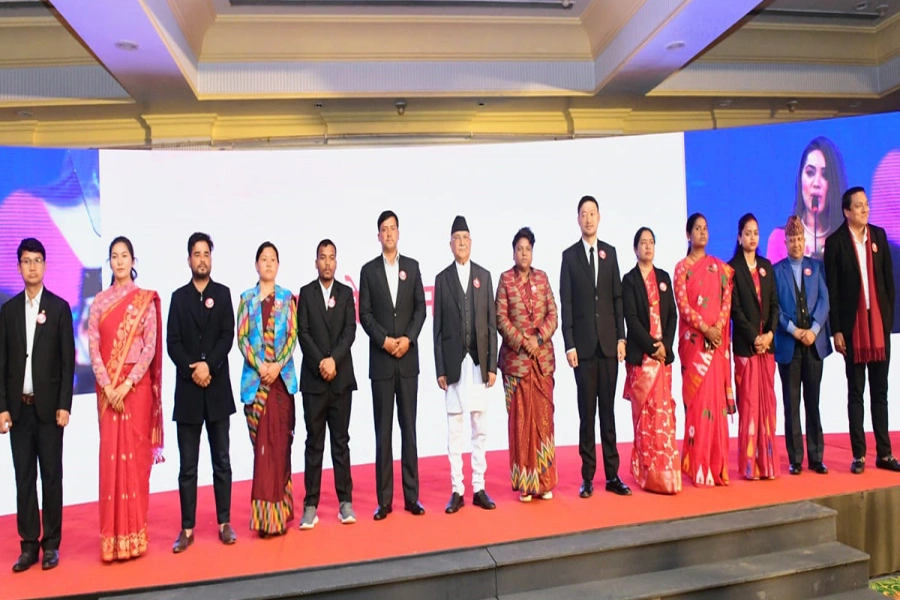JUMLA, Dec 9: Amrita Rawal, 72, of Tatopani Rural Municipality-2, Jumla Dagiwada, has no leisure. She is busy taking care of bees, feeding them, extracting honey and processing it. When she started keeping bees in five hives 25 years ago, she became the first woman beekeeper in the district. Amrita was motivated into keeping bees when she was afraid to go near the hives because bees sting. Now keeping 50 hives of bees, she finds it very fun to see the bees buzzing in the yard, this makes her happy. Beekeeping is not only a source of income for Amrita, but it has also become a way to keep her engaged. Starting from early in the morning, she looks after the bees whether they eat or don’t. She finds a solution to their problems by analyzing their living patterns.
Different types of flowers bloom in the backyard during the rainy season. Bees suck the nectar off these flowers. But in the dry winter, they should be protected by feeding sugar water and by keeping collected honey. Bees usually buzz around and sit on the body of Amrita, who is known as the mother of bees in the village. “These bees recognize me and sit on my body,” she says laughing, “They think of me as a parent. They love me and give me honey.” This year she produced 25 kg of honey. She sold it at the rate of Rs 1500 per kg.
The Tale of the Honey Bees

In recent years, she has not been able to produce as much honey as expected due to unexpected rain. She does not have to rely on any trader to sell honey. She is busy meeting the demands of the customers who come to her house. In Amrita's house, which has a family of 14 people, everyone is busy with studies, teaching and household work. And she is busy taking care of the bees. “It is not important whether they produce honey or not, but these bees should be kept alive,” she says, “Because it hurts when bees die. My heart cries when the bees are hungry.” She does not have any technical knowledge except the training in beekeeping she gained in Godawari, but her love for bees is amazing. “Now she is like a bee expert. She understands their emotions,” says son Ram, “When mother stands in the yard, the bees swarm around.'” After her husband died 11 years ago, she became even closer to bees. She has also been spending her senior citizens allowance on beekeeping. There is a high demand for the honey produced here because bees graze on the flowers of the plants from 2100 meters height of Jumla to the foothills. Now four people in his village are keeping bees. This year, out of 30,000 hives in the district, production has decreased by 50 percent. According to Lachi Ram Mahat, head of the District Agriculture Development Office, Jumla, the production of honey has decreased by 10 tons annually. He said that there is a problem for the beekeepers in Jumla due to the scarcity of grazing land. “Due to unorganized extraction of white sugar herb, crushing of flowers in Patan area, bee diet has decreased,” he said.







































